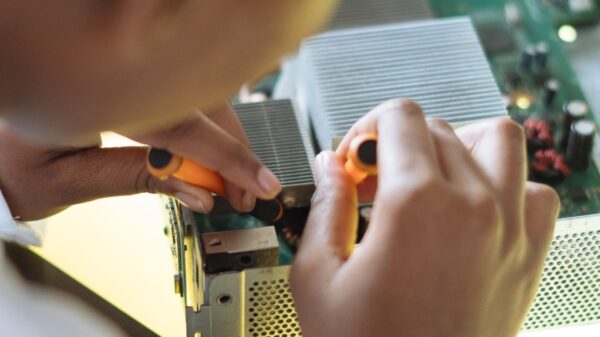According to Statista, the average person spends over two hours a day scrolling through various social media platforms. And Business of Apps reports Gen Z spends more than four hours online daily. In a chronically online world, those who spend significant time on social media have their worldviews decided by mathematical algorithms.
These algorithms decide what you see and when you see it. And a study by The Brookings Institution shows they can shape your perception of reality. Unfortunately, these equations partition people into groups, divided by things they want to see and things they don’t. With that said, here’s how the algorithm puts you, the user, in a tiny bubble called an echo chamber.
Social Media algorithms are the driving force of online echo chambers.
Though mild in most cases, social media algorithms funnel users into “increasingly narrow ideological ranges,” according to Brookings. Generally, the goal is to show you content that will keep you glued to whatever app you’re using. Often, it’s by showing you content that the platform’s algorithm thinks you would enjoy. However, seeing content that could upset you is also effective at achieving this goal.
This fosters a phenomenon called confirmation bias. Or “the tendency to seek […] information which supports one’s existing theories of beliefs,” according to the Oxford Dictionary. And as a consequence of only accepting new information reinforcing your preexisting ideas, you tend to reject challenging ideas.
And a Cambridge University study shows that the echo chambers created by social media algorithms lead to increased polarization. This polarization effect is especially prevalent when it comes to political stances. Which, in turn, leads to the highly partisan and divided society we see in 2023.
However, the idea that the internet could lead to echo chambers gained traction well before the social media revolution. The Cambridge study says this theory goes back to 1996, during the heyday of online forums.
Engagement drives a post’s popularity, whether positive or negative; the truth doesn’t matter.
According to Big Think, user engagement drives a social media post’s virality and reach. In other words, the more people interact with a post, the faster it spreads. This, in turn, reinforces confirmation bias and online echo chambers. This engagement or popularity bias further polarizes social media users. Because posts that generate strong emotional reactions, whether positive or negative, are more likely to receive user engagement.
Additionally, Big Think found that users are likelier to share a popular post without concern for its legitimacy. And unfortunately, this can have real-world consequences, such as in the 2020 presidential election. MIT Technology Review found that “troll farms,” groups spreading misinformation to drive engagement, profoundly impacted public opinion.
These troll farms spread misinformation to 140 million Americans a month leading up to the 2020 presidential race. Troll farms created ten of the top fifteen Facebook pages targeting African-Americans in October 2019. And they accounted for nineteen out of the top twenty Facebook pages targeting Christian Americans.
Media literacy is more important than ever in 2023.
The ability to decode misinformation is crucial when social media algorithms affect our daily lives and the information we receive. Media literacy is the ability to analyze and evaluate the media we interact with to understand its truthfulness and intent. Without this skill, social media algorithms can have severe negative impacts on our lives beyond spreading polarization, especially on children.



























